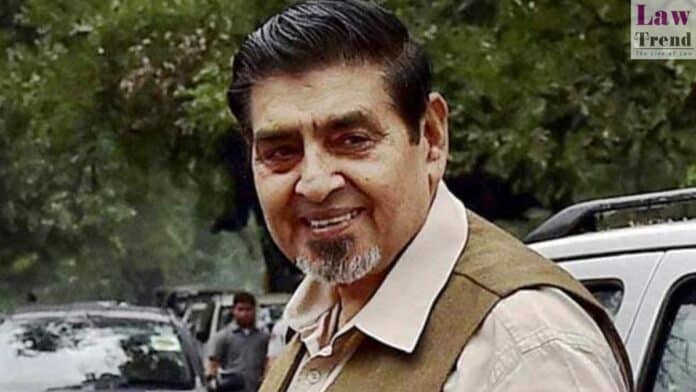A pivotal decision is expected on August 30 as a Delhi court will determine whether to frame charges against former Union Minister and Congress leader Jagdish Tytler. The charges pertain to his alleged involvement in the 1984 anti-Sikh riots, specifically an incident that led to the deaths of three individuals near the Pul Bangash area.
During a recent hearing, Special CBI Judge Rakesh Siyal announced the reservation of the order following clarifications from the involved parties. “There are no further clarifications required. I am reserving the order for August 30,” Judge Siyal stated, marking a significant moment in the long-standing case.
The Central Bureau of Investigation (CBI), in its charge sheet filed in May 2023, accused Tytler of inciting violence against Sikhs in the aftermath of former Prime Minister Indira Gandhi’s assassination. According to the charge sheet, Tytler allegedly emerged from a white Ambassador car and incited a mob outside the Pul Bangash gurdwara on November 1, 1984, urging them to retaliate against Sikhs.
The prosecution’s case is strengthened by eyewitness accounts that placed Tytler at the scene, allegedly provoking the crowd with shouts of “Kill the Sikhs, they have killed our mother!” This incident, which resulted in three fatalities, occurred just a day after Indira Gandhi was assassinated by her Sikh bodyguards, an event that triggered widespread communal unrest across the country.
The anticipation for the upcoming court ruling stems from its potential to set a precedent in cases related to political figures involved in communal riots. Tytler, who received anticipatory bail from a sessions court in August of the previous year, faces serious charges including rioting, abetment, and murder under various sections of the Indian Penal Code (IPC).
Also Read
As the court readies to pass its order, all eyes will be on whether the allegations against Tytler will move forward to trial, marking a critical juncture in the quest for justice for the victims of the 1984 anti-Sikh riots. The decision on August 30 will undoubtedly be a significant moment not only for the parties directly involved but also for the broader discourse on accountability and historical justice in India.




